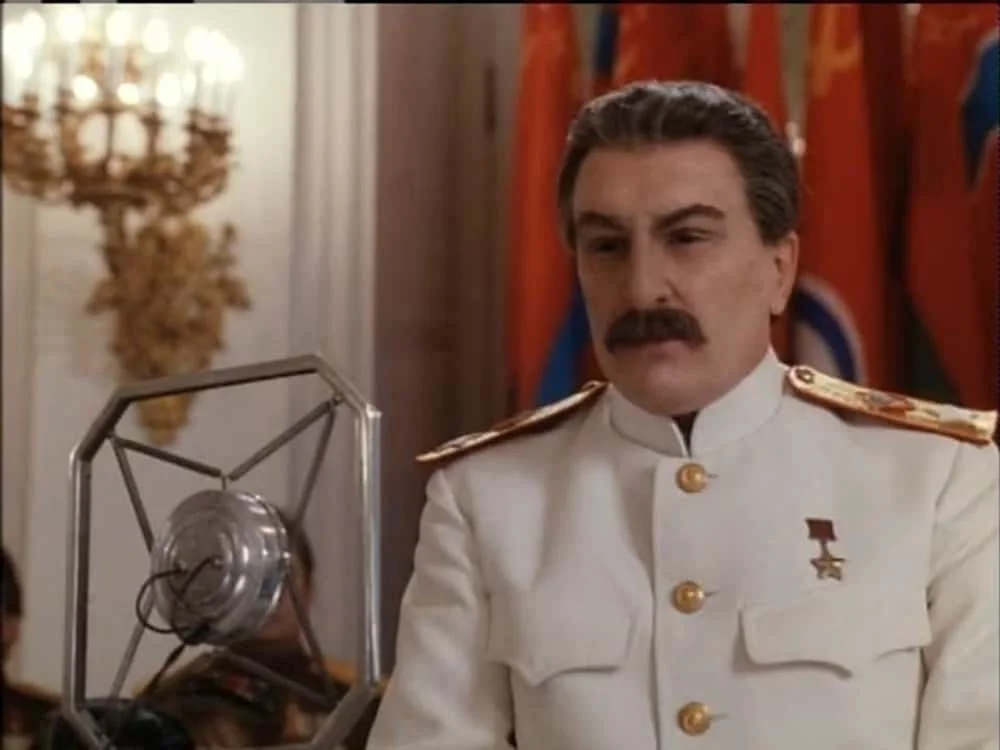.avif)
How an Ancient Warrior Might Elevate Our Democracy
The life of the Athenian statesman and general Phocion is "good to think with."
Thomas Martin’s newest book, Phocion: Good Citizen in a Divided Democracy, tells the story of Phocion the Good (401-318 B.C.), a lesser-known Athenian statesman who served his city with distinction as a general and politician in the final decades of classical Greece. Phocion was celebrated in his day for his courage, good judgment, and virtue (read: severe austerity), but in the intervening millennia he has more or less faded into obscurity, except for a brief period of renewed interest during the enlightenment when his life was understood as a cautionary tale of the dangers of Athens-style direct participatory democracy.
Martin’s excellent book has many virtues. It is, first and foremost, well-written, engaging, and fun to read. Despite being a serious autobiography that soberly treats its subject matter, I found it something of a page-turner.
Second, Martin has a perceptive eye, and his book is packed with many insights into the cultural and historical world of Classical Greece. Here are a few examples chosen at random: first, it is known from Plutarch that Phocion persistently avoided symposia (in effect, drinking parties). Martin has an insight here that is easy to overlook, symposia were aristocratic events, and attendance at a symposium signaled solidarity with the elite class of wealthy Athenians. Hence, Phocion’s attendance at symposia would’ve been interpreted by the non-elite multitude as aligning him with the political elite. Hence, Martin proposes that Phocion avoided symposia to send a message to the non-elites that, in effect, he was one of them. Second, there is a curious episode in Phocion’s life when he rejects a large gift from Alexander, at which Alexander is enraged. Martin spells out what is going on here: giving gifts demonstrated one’s superiority over the beneficiaries of one’s largesse. By refusing the gift, Phocion is depriving Alexander of this opportunity.
A third virtue of the book is that it deals carefully with the evidence bearing on Phocion’s life. This evidence is sparse. In addition to Plutarch’s biography of Phocion, there is little else to work with: a brief Roman biography by Cornelius Nepos, which occasionally contradicts Plutarch, a few brief references in Diogenes Laertius, Aelian, and Dio Chrysostom, but not much more. Martin, however, makes good use of this evidence, sifting it carefully. Consider, for example, how he determines that Phocion was from a wealthy family: multiple sources attest that Phocion, when a young man, served as the commander of a naval warship. That post required a good deal of financial outlay, since each commander had to fund his trireme himself. Since Phocion could not have amassed such a fortune by the time he served as commander, he must’ve inherited it. Hence, pace Cornelius Nepos, who alleges that Phocion was born poor, Phocion must have been the scion of a wealthy family.
Another virtue of Martin’s book is that it paints a vivid picture of the social, economic, and material conditions of life in Athens in the late classical period. Martin intends to tell the story of Phocion’s life, but our sources tell us nothing about Phocion’s early years. Martin’s solution to this problem is ingenious. Instead of skipping over Phocion’s first two decades, he reconstructs an Athenian male's average childhood and young adulthood from Phocion’s social and economic class—the wealthy elite.
He provides a gritty, realistic look at the fragile existence of newborns and infants in fourth century Athens. The author paints a vivid picture of Athenian teenage life as young men jockey for the attention of their elders, compete to prove their worth in athletic and artistic events (e.g., theater choruses), and attain adulthood through various rituals and ceremonies. Martin also examines the military service expected of young Athenian citizens, describing in intricate detail the gear of a hoplite, the conditions on campaign, and the clash of combat, among other things. Finally, the reader gets a helpful overview of the (quite complex) political institutions of democratic Athens. Martin’s book would be worth reading even if it consisted only of these four chapters.
The fifth and final virtue is the admirable purpose that inspires Martin’s project. In the introduction, Martin clarifies that he does not want to tell the story of Phocion’s life merely. “Phocion’s history,” he writes, “offers us an opportunity to ponder not only what went wrong—what led to the ruin of Athen’s democracy, but how his life story might help us analyze and combat current crises afflicting contemporary democracies.” In other words, Martin’s ultimate object, in writing this work, is to help us learn from the past, to help us distill certain lessons from Phocion’s life that guide us as we navigate our own social and political situation. As Martin puts it (citing a well-known line of Claude Levi-Strauss), the past is “good to think with.”
Martin’s book, however, is not without its drawbacks. In the first place (following upon the point made in the previous paragraph), I was somewhat disappointed by the lesson Martin ends up drawing from Phocion’s life. The chief lesson, for Martin, is this: we should not be overly critical or harsh of our fellow citizens when seeking to win them over to a course of action. That you catch more flies with honey than with vinegar is a valuable lesson, but it is not one that we need to scrutinize the lives of the ancients to learn. Admittedly, Martin situates this lesson within a particular account of human psychology and motivation.
His idea, borrowed in part from ‘social identity theory,’ is that a shared sense of belonging underlies and helps make possible collective action (including action initiated by and under the direction of a leader) and that harsh criticism undermines that shared sense of belonging. I am in broad strokes sympathetic to this account, but—and here is my deeper worry about the lesson Martin sees in Phocion—I am not yet convinced that this lesson is there in Phocion’s life to be seen.
We know from Plutarch that Phocion was often very critical of the moral failings of others, both of his rival statesmen and the democratic masses. But there’s little in Plutarch to suggest that these frequent rebukes alienated Phocion from his fellow citizens. Indeed, the fact that he was elected stratēgos repeatedly (a total of 45 times) points in the other direction. Of course, Phocion’s eventual fall from grace and execution (he was sentenced to death for treason by the recently restored popular assembly) suggest that, at least at the end of his life, Phocion was no longer seen as ‘one of us’ by the democratic masses that executed him, but I don’t see any reason to attribute that change in status to Phocion’s harsh rhetoric and frequent admonitions of others.
A simpler explanation suggests itself—namely, that Phocion was seen as an outsider who was not one of the people because he took the oligarchic side over against the democratic side in a bloody power struggle for the Macedonian throne that erupted in the wake of Alexander’s death. Until Martin can show that his explanation is more plausible than this alternative, I will not be convinced that the lesson Martin sees in Phocion’s life is there.
A second drawback of Martin’s book is that it doesn’t give sufficient attention to Phocion’s relationship to philosophy. This criticism may seem unfair since Martin devotes several pages to discussing Plato’s philosophy (Phocion studied at the Academy under Plato as a young man). But even that discussion seemed to give short shrift to the topic. Phocion’s interest in philosophy continued throughout his life. As an older man, he frequented the lectures of Xenocrates and was a follower of Diogenes of Sinope.
This fact can explain many otherwise puzzling aspects of Phocion’s life. Consider first his austerity. Austerity was a well-known feature of the philosophical life. Diogenes famously lived in a tub on the street, went about barefoot, used his cloak as a ‘mattress’, and discarded his drinking cup (one of his sole possessions) when he learned from a boy how to drink water with his hands. Statesmen who practiced philosophy often displayed this same degree of strict self-reliance.
For instance, Epaminondas, the great philosopher-statesman of Thebes, owned only one cloak, refrained from alcohol, ate simply, and refused to take bribes. It is tempting to think that Phocion lived an austere life (refraining, like Epaminondas, from luxury, wine, bribes, etc.) for the exact same reason—because he was practicing the philosophical life. Second, consider again Phocion’s harsh criticism of others for their moral failings. Like austerity, public censure was a well-known feature of philosophers. This can be traced back at least to Socrates, who describes himself in the Apology as a gadfly sent to wake up the citizens of Athens by rebuking and censuring them.
Diogenes followed in Socrates’ footsteps by criticizing his fellow citizens for their perceived failings whenever possible. Again, it is tempting to think Phocion dealt harshly with his fellow citizens for the same reason—because he, like his teacher Diogenes and Socrates before him, was attempting to wake his fellow Athenians up from their dogmatic slumbers. These are only suggestions. But the similarities between Phocion and other philosophers on these points (among others) invite a closer look.
These drawbacks are slight compared to the book’s advantages. In Martin’s able hands, Phocion's story comes to life in vivid color. Anyone unfamiliar with Phocion’s history or who would like an informed, perceptive book that shines light on the political and social world of fourth century Athens should read this book.
Reid Comstock is a postdoctoral fellow at the Civitas Institute. He received his Ph.D. at the University of Notre Dame.
Politics

National Civitas Institute Poll: Americans are Anxious and Frustrated, Creating a Challenging Environment for Leaders
The poll reveals a deeply pessimistic American electorate, with a majority convinced the nation is on the wrong track.
.webp)
Liberal Democracy Reexamined: Leo Strauss on Alexis de Tocqueville
This article explores Leo Strauss’s thoughts on Alexis de Tocqueville in his 1954 “Natural Right” course transcript.
%20(1).avif)
Long Distance Migration as a Two-Step Sorting Process: The Resettlement of Californians in Texas
Here we press the question of whether the well-documented stream of migrants relocating from California to Texas has been sufficient to alter the political complexion of the destination state.
%20(3).avif)
Who's That Knocking? A Study of the Strategic Choices Facing Large-Scale Grassroots Canvassing Efforts
Although there is a consensus that personalized forms of campaign outreach are more likely to be effective at either mobilizing or even persuading voters, there remains uncertainty about how campaigns should implement get-out-the-vote (GOTV) programs, especially at a truly expansive scale.

There's a Perception Gap With the U.S. Economy
As we approach another election cycle, it’s worth asking: what’s real, what’s political theater, and what does it all mean if Democrats regain control of the House?

International Law Is Holding Democracies Back
The United States should use this moment to argue for a different approach to the rules of war.

Trump purged America’s Leftist toxins. Now hubris will be his downfall
From ending DEI madness and net zero to securing the border, he’ll leave the US stronger. But his excesses are inciting a Left-wing backlash

California’s wealth tax tests the limits of progressive politics
Until the country finds a way to convince the average American that extreme wealth does not come at their expense, both the oligarchs and the heavily Democratic professional classes risk experiencing serious tax raids unseen for decades.

When Duvall Played Stalin
It’s strange to compliment an actor for impersonating a tyrant, but it is an act of courage.

When Vanity Leads to Impropriety
A president should simply not be allowed to name anything after himself without checks from Congress or an independent commission.










